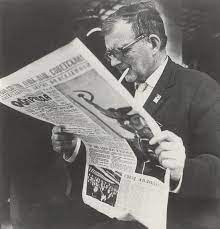New Yorker ‘won’t publish’ letter from Metropolitan Opera
mainWe hear from a very well-placed source that the New Yorker is refusing to publish a letter from the Metropolitan Opera that claims alleged inaccuracies in its recent feature on the company. The New Yorker is backing its reporter, as it should. The letter is signed by officers of the Board, but its language belongs identifiably to Gelb.
Since some readers couldn’t read the small print in our original offprint of the letter, here’s the full text:

To the Editor:
Although the New Yorker is highly regarded for the integrity of its reporting, James Stewart’s piece about the Met is seriously lacking in a number of ways. In the 72 hours prior to the closing of the piece, several hundred facts were checked for accuracy with the Met’s staff. Most were wrong. While many mistakes were corrected, the article still has numerous errors and misleading statements.
For example, Stewart cites various sources to confirm that opera ticket sales are generally up, except at the Met, which is denying reality. There have been numerous surveys, such as the 2014 LaPlaca Cohen study, that show tickets sales for opera and classical music have been flagging across the United States in recent years.
Stewart says the FY13 salary figures the Met cited during union negotiations for the orchestra were inflated by a season with unusually long operas when in fact average orchestra pay was at basically the same level as in the prior season: $196,000 in FY12 and $133,000 (sic) in FY13. While the unions and the Met struggled during last summer’s negotiations, they ultimately reached an agreement that have (sic) significantly lowered costs and that will enable the Met to wipe out its previous $22 million deficit. Stewart fails to make this connection.
Stewart’s article inaccurately states that the unions now have “oversight” over the Met, which is not the case. Rather, there is a contractual mechanism for verification that cost cutting and equality of sacrifice between unionised employees and administrative staff has been achieved.
Stewart quotes an honorary Met Board member who says that at Board meetings, ‘Now you just listen to Mr Gelb.’ Since the honorary Board member in question hasn’t attended a Board meeting in person since Mr Gelb became General Manager nine years ago, it seems unlikely that he would know.
Stewart attempts to give the impression that the Board is divided. In fact, the Board solidly supports Gelb and is united in its commitment to securing the future of grand opera, the Met and its employees.
Sincerely
Kevin Kennedy
President
Ann Ziff
Chairman
William G. Morris
Chairman, Executive Committee
Judith–Ann Corrente
Secretary





Comments